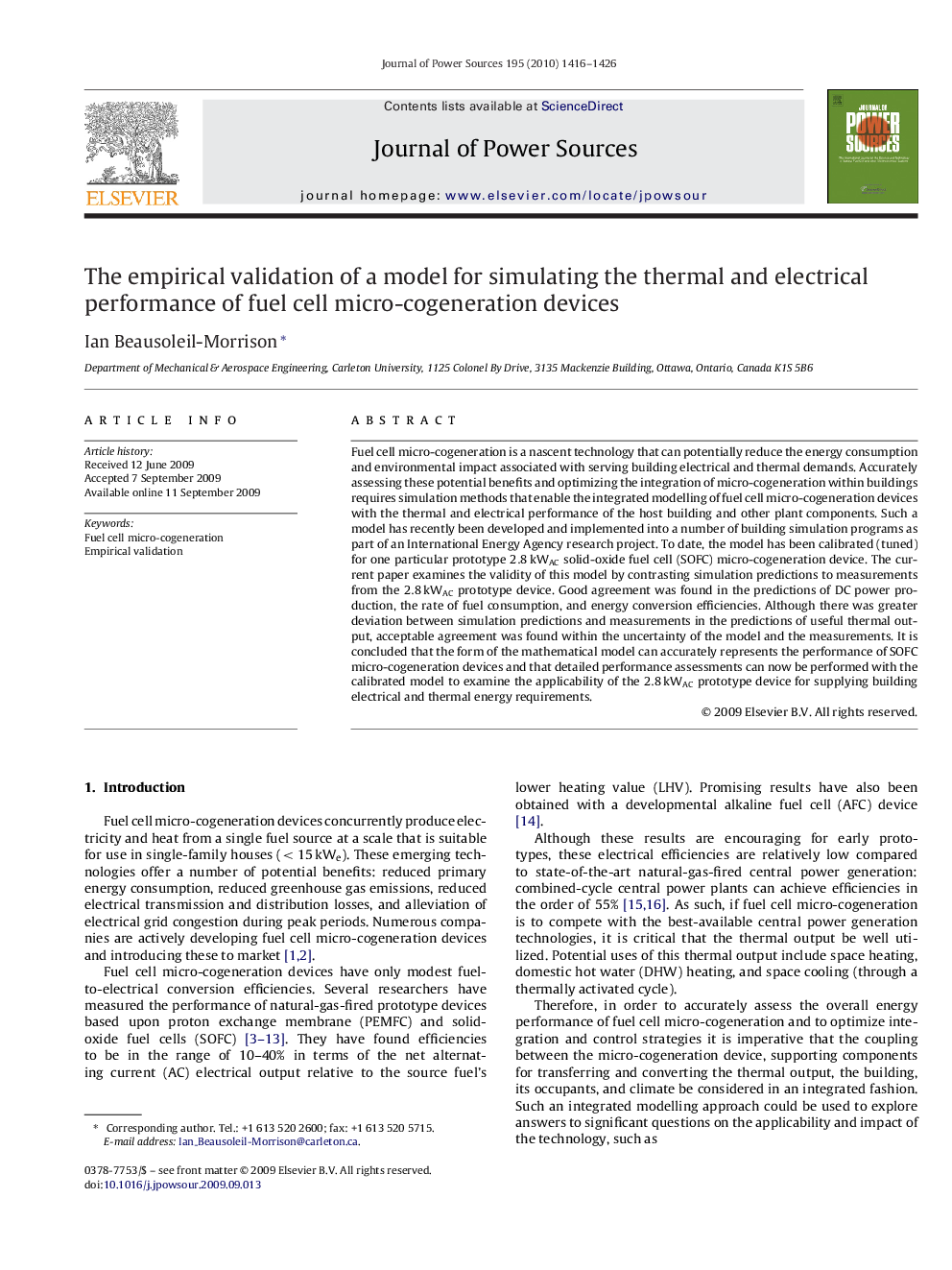| Article ID | Journal | Published Year | Pages | File Type |
|---|---|---|---|---|
| 1293822 | Journal of Power Sources | 2010 | 11 Pages |
Fuel cell micro-cogeneration is a nascent technology that can potentially reduce the energy consumption and environmental impact associated with serving building electrical and thermal demands. Accurately assessing these potential benefits and optimizing the integration of micro-cogeneration within buildings requires simulation methods that enable the integrated modelling of fuel cell micro-cogeneration devices with the thermal and electrical performance of the host building and other plant components. Such a model has recently been developed and implemented into a number of building simulation programs as part of an International Energy Agency research project. To date, the model has been calibrated (tuned) for one particular prototype 2.8kWAC solid-oxide fuel cell (SOFC) micro-cogeneration device. The current paper examines the validity of this model by contrasting simulation predictions to measurements from the 2.8kWAC prototype device. Good agreement was found in the predictions of DC power production, the rate of fuel consumption, and energy conversion efficiencies. Although there was greater deviation between simulation predictions and measurements in the predictions of useful thermal output, acceptable agreement was found within the uncertainty of the model and the measurements. It is concluded that the form of the mathematical model can accurately represents the performance of SOFC micro-cogeneration devices and that detailed performance assessments can now be performed with the calibrated model to examine the applicability of the 2.8kWAC prototype device for supplying building electrical and thermal energy requirements.
